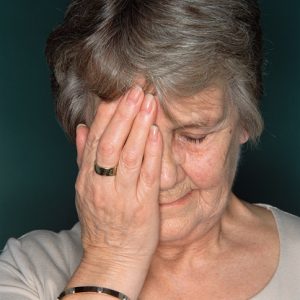
This was seen to more prevalent in women suffering from chronic pain, as they often exaggerate or irrationalize their level of pain and report greater pain intensity.
According to a new study, these women are more likely to take prescribed opioids than men with a similar pain condition.
“Our research underscores how psychological factors such as negative thoughts or emotions have the capacity to influence how we experience pain and the likelihood that someone will be taking prescribed opioids. The findings suggest that pain intensity and catastrophizing contribute to different patterns of opioid prescribing for male and female patients, highlighting a potential need for examination and intervention in future studies,” said study co-author Beth Darnall.
Negative thinking increases pain perception
The researchers go on to say that this negative mindset can be a powerful influence on sensory perception. It is this exaggeration of pain symptoms that ultimately influences pain treatment.
The study in question looked back at clinical data from nearly 1,800 chronic pain patients who had all been evaluated by a pain treatment center between January 2014 and April 2015.
Patients were assessed based on average pain intensity, pain catastrophizing scale, sex, and other criteria. Opioid prescriptions were also documented.
Women who irrationalize their pain levels take more opioids
The researchers found that 57 percent of patients were prescribed at least one opioid medication. Women who were known for pain catastrophizing were found to be more strongly associated with opioid prescriptions. Opioid use in men was strongly related to their pain intensity.
“Our findings show that even relatively low levels of negative cognitive and emotional responses to pain may have a great impact on opioid prescribing in women. We hope to study whether early treatment for pain catastrophizing may reduce opioid prescriptions for both sexes, particularly for women. As the impact of chronic pain grows, it is vital that we understand the nuances of how it affects different populations and how to best intervene,” said lead author of the study Yasamin Sharifzadeh.